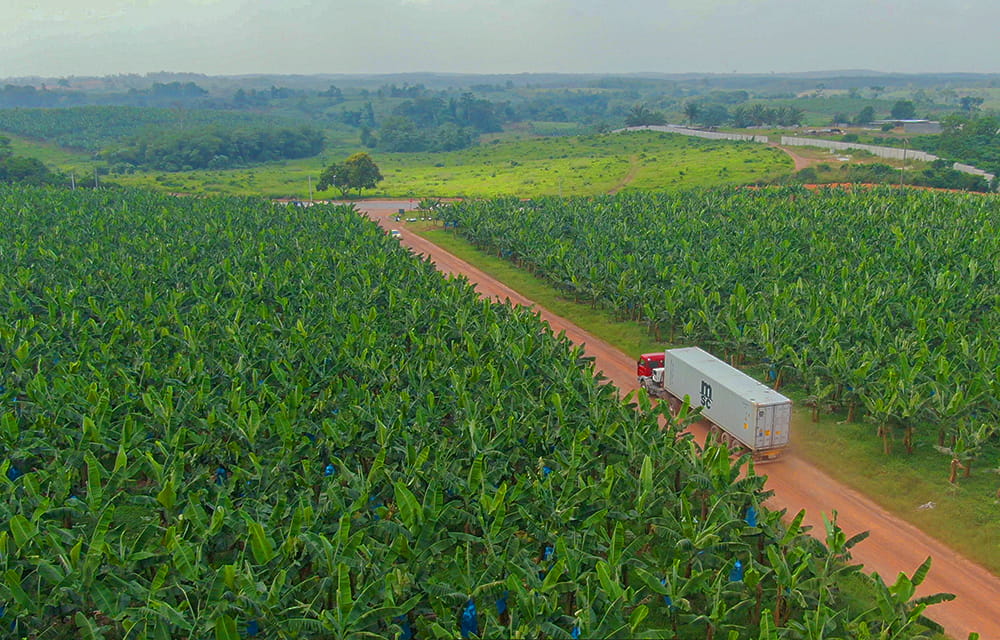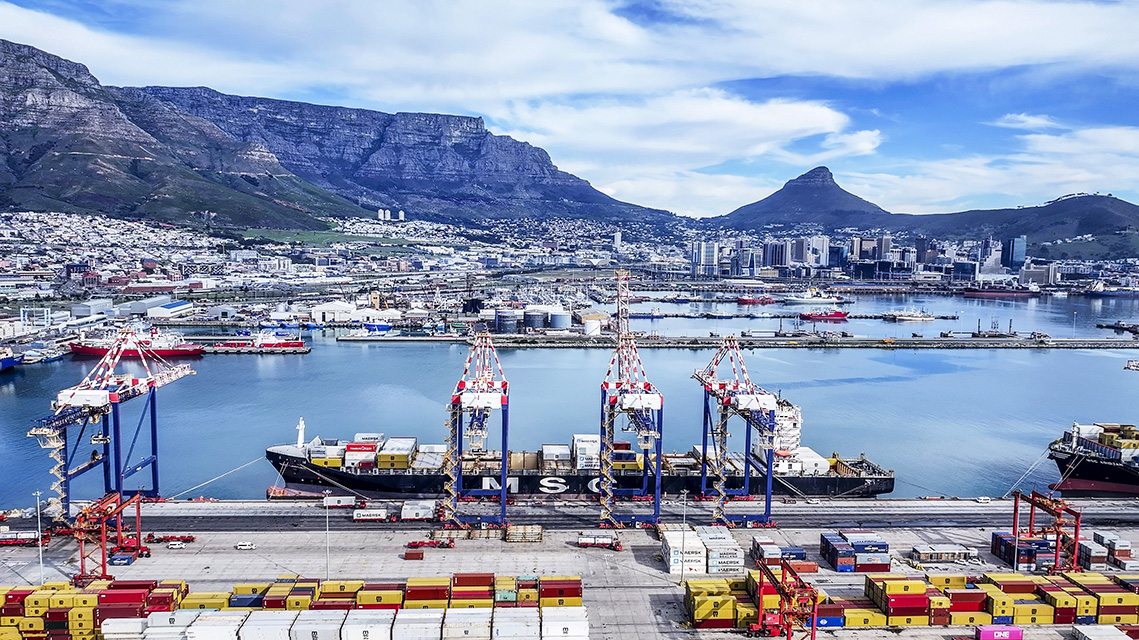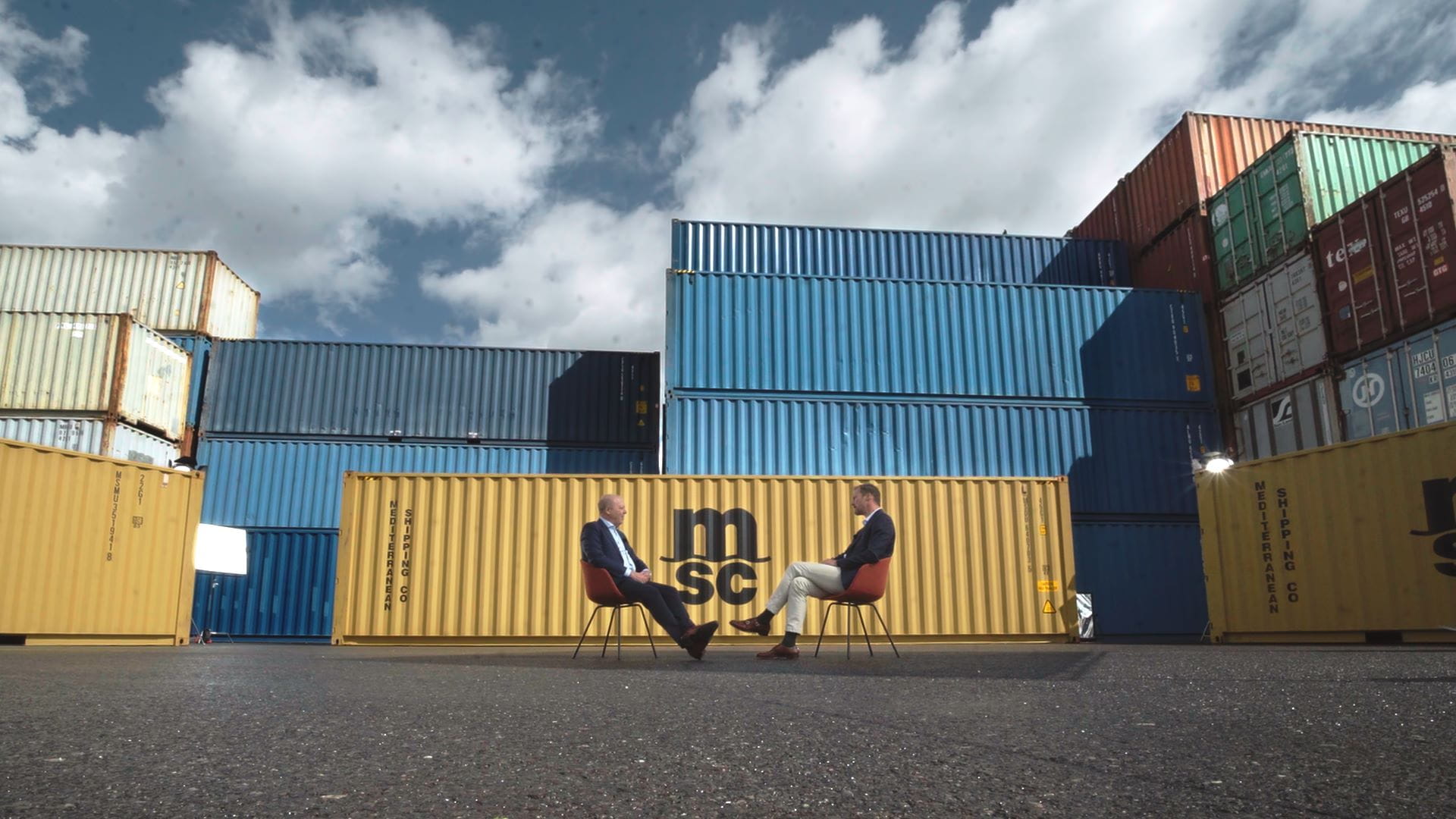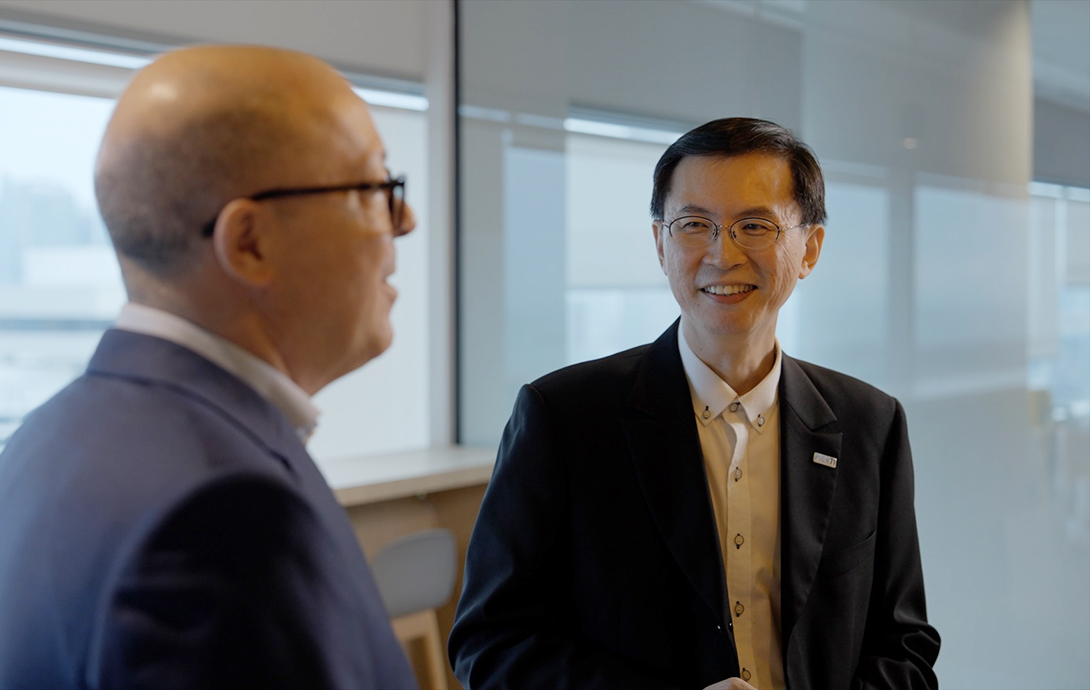
/ja/newsroom/stories/digital/2024/msc-digital-talks-ep-9-the-human-side-of-digital-transformation
MSC Digital Talks Ep. 9: The Human Side of Digital Transformation
27/03/2024
Our MSC Digital Talks series is back with a brand-new episode featuring shipping and freight expert Hariesh Manaadiar. Filmed in Las Vegas with our CDIO André Simha, the conversation focuses on the human side of digitalization.
With 30+ years of experience in the industry, Hariesh is the founder of Shipping and Freight Resource, which has been providing millions of readers with quality logistics, supply chain and trade-related content since 2008. He also runs the resource’s educational arm, the Shipping and Freight Academy (SFA). Hariesh is a member of the International Chamber of Commerce (ICC) network, a fellow of the Chartered Institute of Logistics and Transport (FCILT), and a member of the ICC DSI/IAB Working Group on Key Trade Documents and Data Elements (KTDDE).
" Technology is very important in our industry and digitalization, but the core of the industry still remains its people. "
- 00:04:47: Why people are the core of shipping
- 00:02:31: The impact of AI on jobs
- 00:20:14: Driving change – younger vs older generations
- 00:26:33: Why 2030 could be a “tipping point”
People: the driving force behind digitalization
André and Hariesh discuss the importance of adopting and adapting to new technologies and AI, as well as the need to “start from the basics” in order to move forward. They agree that the purpose of digitalization is not to take away jobs from people, but to make business processes simpler and more efficient for everyone involved, a “win-win” for carriers and customers alike.
Plus, with major changes already underway – from smart containers to the electronic bill of lading (eBL) – Hariesh explains why he sees 2030 as a potential “tipping point” for the industry.
In the meantime, you can join the conversation on social media using the hashtag #MSCDigitalTalks
Our #MSCDigitalTalks video series explores shipping’s digital transformation through conversations with industry leaders and experts.
Follow André Simha and #MSCDigitalTalks on LinkedIn to watch the latest episodes and share your ideas.
Read Episode 9 Transcript
INTRODUCTION (00:38)
Andre Simha: Hariesh, hi. Thank you so much for being here today with me on this Digital Talk to discuss the human side of digital transformation. We know that technology is an enabler, but the heart of digital transformation lies within the people and their capacity to adopt and adapt.
Hariesh Mannadiar: Thank you for having me on a prestigious show like MSC Digital Talks. I have been a regular viewer and listener to your episodes and it's always very insightful. So, thank you, Andre.
Andre Simha: Your 30+ years of background in this industry, sharing your views on your website, with your blogs, the marketing analysis that you do, these are all things that are extremely important to share with our viewers. So welcome again.
THE ROLE OF TECHNOLOGY AND PEOPLE IN DIGITAL TRANSFORMATION (01:33)
Andre Simha: We're here in Vegas. Vegas is a city that's transformed itself from being purely entertainment casinos into a technology hub. So, I think it's a very good example of a city that's managed to transform itself – something that, of course, we both agree we need to do in the maritime industry.
Hariesh Mannadiar: Yes, technology is very important in our industry and digitalization, but the core of the industry still remains its people. Shipping still needs people, and that fact is not going to change any time soon.
Andre Simha: So, it doesn't change because it's physical. We're still moving goods. We're putting it on ships, on trucks.
Hariesh Mannadiar: In between, yes, there are some processes that can be improved. For example, if you take the bills of lading, we used to do it on paper, now we are shifting it to electronic bills of lading. We have moved to containers and from containers to smart containers and different things. Technology, as you mentioned, is an enabler. Digitalization is also an enabler for the business and is not really designed to take away at least some of the jobs of the people.
Andre Simha: We're not changing the way we do business. We're just changing the processes, perhaps, to make them more efficient, simpler and in the end, it's a win-win for both sides of the transaction.
Hariesh Mannadiar: Absolutely.
THE IMPACT OF AI ON JOBS (03:02)
Andre Simha: But what do you think about AI, for example, since it's a hot topic?
Hariesh Mannadiar: Artificial Intelligence is the future. And even for our industry or any industry, AI is not going to take away jobs from people, but people who use AI are going to probably take away jobs from other people. So, the people that are not used to these kinds of technologies must adapt to it. And the more they learn about it, the more aware they are of those technologies, it will be better suited to help them in their work.
Andre Simha: So, understanding how it can help, rather than being afraid that it's going to take over your job.
Hariesh Mannadiar: Yes, especially in an industry like shipping, where there are still a lot of inherent inefficiencies. Tools like AI and assisted by other technologies will definitely be a game changer.
Andre Simha: Absolutely. I'm 100% with you there.
DRIVING CHANGE: YOUNG VS OLD GENERATION (03:59)
Andre Simha: How do you see the future of shipping?
Hariesh Mannadiar: I see it as quite bright because a lot of new talent and new ideas and new age groups are coming into this industry, thanks to technology, of course, because a lot of the newcomers want to be involved in technology and want to adapt to technology. But it is also important to remember that we need to start from the basics. Whoever is coming in new to the industry should also start from the basics, because without the basics, you cannot move forward. As we discussed earlier, the objective of shipping has not changed. So, we need to start from the beginning and move on, evolve, adapt.
Hopefully people like us are able to pass on some of the legacy to the newcomers and they are able to take it on and add their own value to it and keep increasing and improving the value of shipping.
Andre Simha: So, we're using our individual 30+ years of experience to spread the word to the younger generation and even to the people in place today. My feeling is that a lot of this needs to come also from the bottom up.
Hariesh Mannadiar: Absolutely. Because we can do a certain amount of handholding till, we get them to a tipping point. So, in my view, in the next say about seven years, things could be radically different from what it is now because several organizations are all pushing towards that same common goal of digitalization and enabling or using technology as an enabler to move into the future.
I mean, the likes of DCSA are there, IMO is doing a lot of work. I’m part of some of the ICC working groups where we are doing some data standards and things like that. So, these are all ideas and initiatives that are helping to propel the industry towards the future. So yes, we definitely have to do a bit of handholding till we get the industry to that era.
Andre Simha: So, you see the tipping point around 2030.
Hariesh Mannadiar: I would say that, yes.
Andre Simha: Makes sense, makes sense. I think I can agree with you. Let's see what happens.
Hariesh Mannadiar: Yes, definitely.
Andre Simha: Well, Hariesh, it was a lot of fun speaking with you today and thank you so much for taking the time and giving us your insights. I appreciate it a lot.
Hariesh Mannadiar: Thank you.
BONUS SCENE
Andre Simha: And we just discovered we have a common friend. [No way.] Yeah, that we've had for 20 years, and we didn't know. So, we're going to send him a selfie.




